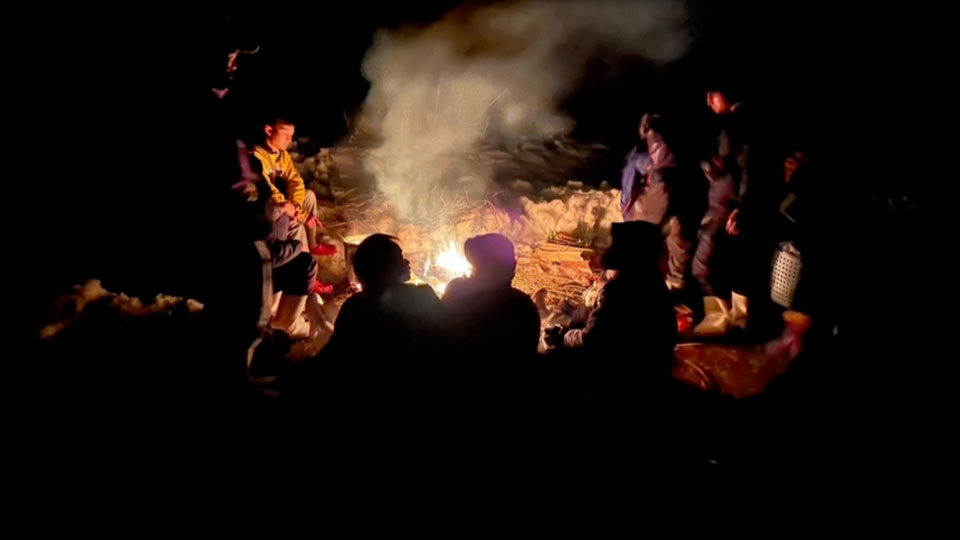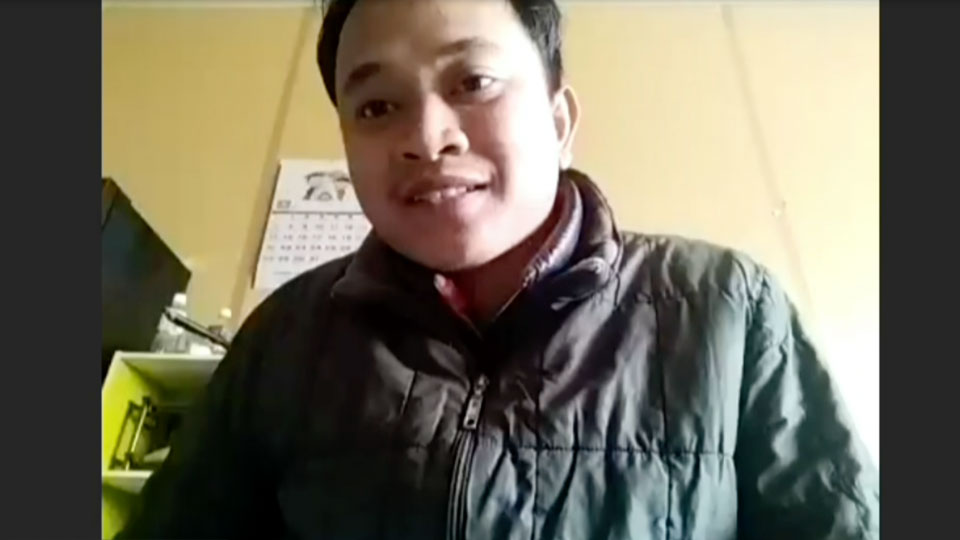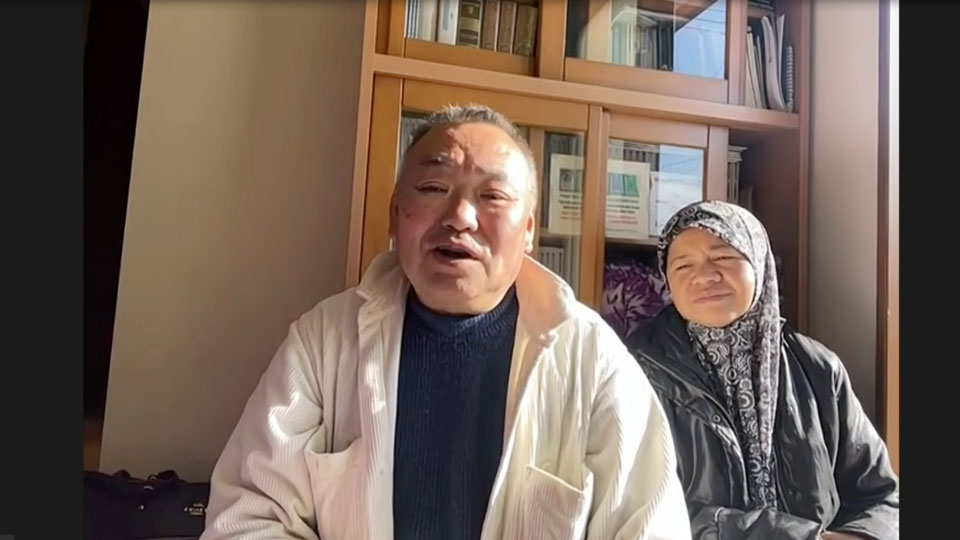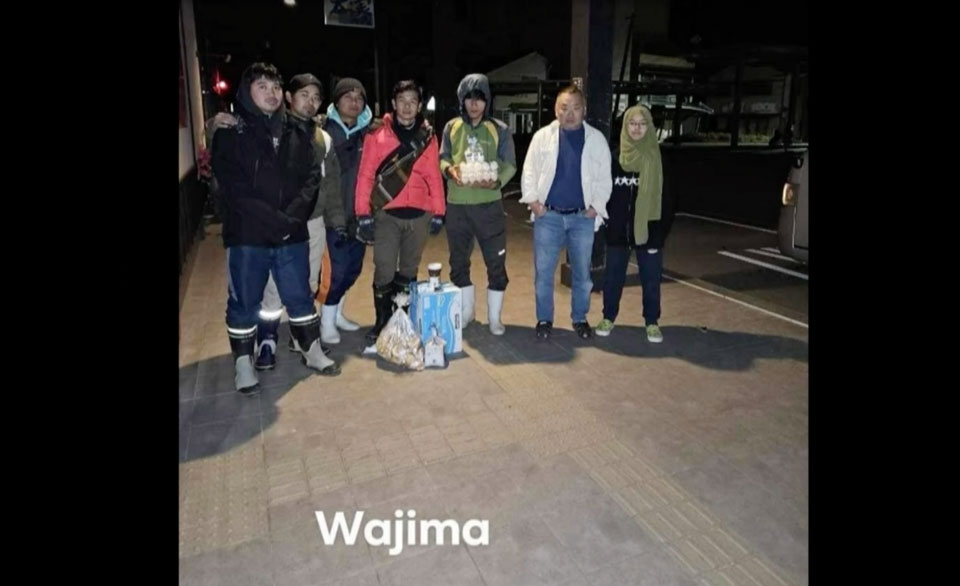When a siren sounded in Suzu City, Ishikawa Prefecture, after the New Year's Day earthquake, Indonesian workers based there knew it meant that a tsunami might be on the way. It was all the warning they needed to flee their dormitory near the seafront — but none of them knew where to go or how much time they had.

Dwiki Andrianto Prakoso has been working at a fishery in Suzu for five years. He says he and 16 colleagues were napping, showering or taking part in afternoon prayers when the tremors hit and the tsunami warning came. They ran from the building, some not even stopping to put on shoes.
Heading for the hills
"We kept running, some just wearing towels, directly to the mountains," Dwiki says. "We could hear the sound of the tsunami alarm."

The group camped on a mountainside, burning firewood given to them by Japanese evacuees who saw them in their cars, until the tsunami warning was lifted.

The next day, they made their way to a shelter, but it was full. Dwiki says they had no choice but to return to their dormitory, even as aftershocks continued to rattle the region.

Several days later, the workers are still without electricity, water or gas, and are resorting to creative ways to keep themselves fed. On one occasion, they used rainwater to steam rice over an open flame.
Pleas for help
Indonesia's Embassy in Tokyo says 164 of its nationals have sent requests for food and water.
Embassy officials have asked Tsuchida Naoto to help with the deliveries. He and his Indonesian wife live in Shika, one of towns that suffered the most damage in the earthquake. Tsuchida says he delivered supplies to people in three nearby cities, including Dwiki and his colleagues in Suzu.

"I don't think these supplies are enough, but I hope it can help them get through a few days," says Tsuchida. "I want to support them, since they're isolated and going through this while they're so far away from home."


Dwiki says he and his colleagues are ready to flee again if the authorities issue another warning, and now they're practicing their basic Japanese phrases so they can communicate better with the locals.
Information and resources are available for foreign residents affected by the Noto Peninsula earthquake, offered in English and other languages.
People in need can go to the website:
2024 Noto Peninsula Earthquake/Multilingual Consultation Desk
https://support.ishikawa.jp

